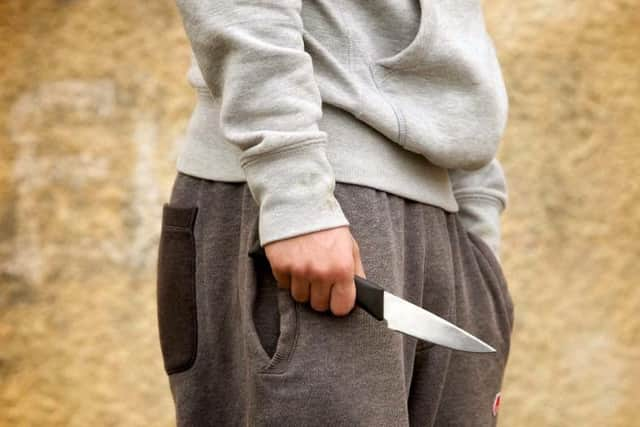Mobile phone scanner to detect knives under clothes developed in Nottinghamshire


Researchers at Nottingham Trent University and Loughborough University are using ordinary cameras combined with electromagnetic infrared waves and a unique computer algorithm to detect weapons hidden beneath clothing.
Tests by the researchers show that the technology can detect concealed knives from up to six metres away - through clothing including trousers and heavy coats, and those hidden under belts - but does not show any private body parts.


Advertisement
Hide AdAdvertisement
Hide AdThe news is expected to be welcomed across Nottinghamshire, as 635 weapons have been handed to Nottinghamshire Police during their latest knife amnesty.
The weapons handed in included swords, machetes, butterfly knives, flick knives, throwing knives, Bowie knives and bayonets.
Professor Amin Al-Habaibeh, an expert in intelligent engineering systems from Nottingham Trent University, said: “Knife crime is a growing problem in the UK, but this technology will enable police to spot concealed weapons from a distance which are hidden under clothing, allowing officers to apprehend those who may be about to commit a serious offence.
“At the same time – by providing police with improved intelligence – it will reduce the number of unnecessary stop and searches which take place, allowing innocent people to go freely about their business.
Advertisement
Hide AdAdvertisement
Hide Ad“Our design is extremely cost-effective as it is based on existing technologies and ultimately could be made available through every day mobile phones.”
The universities are among six projects to have received a share of more than £460,000 funding from the Home Office and Department for Transport, provided through a Defence and Security Accelerator (DASA) competition, to fast-track innovative technologies to detect people carrying knives in crowded places such as streets, railway stations and major events.
If the project is up to standard, the Home Office will work closely with the police to assess how these products could be used on the front line.
Victoria Atkins, Minister for Crime, Safeguarding and Vulnerability said: "Recent senseless killings that have snatched young lives away have shocked people across the UK.
Advertisement
Hide AdAdvertisement
Hide Ad“We are determined to protect families from these devastating crimes, and new technology must play a key role in this, together with effective early intervention work and strong law enforcement.
“I’m pleased the Government has been able to support these exciting and innovative projects which have the potential to rid our streets of dangerous weapons.”
Transport Minister Andrew Jones added: “The safety of passengers is absolutely paramount, and we are committed to tackling the scourge of knife crime.
“I’ve seen first-hand this week the exceptional work groups such as the British Transport Police are doing to tackle this issue, but more needs to be done.
“That’s why this funding is so important – it will help us identify ways in which technology can detect concealed knives, helping us keep people safe on our railways.”
